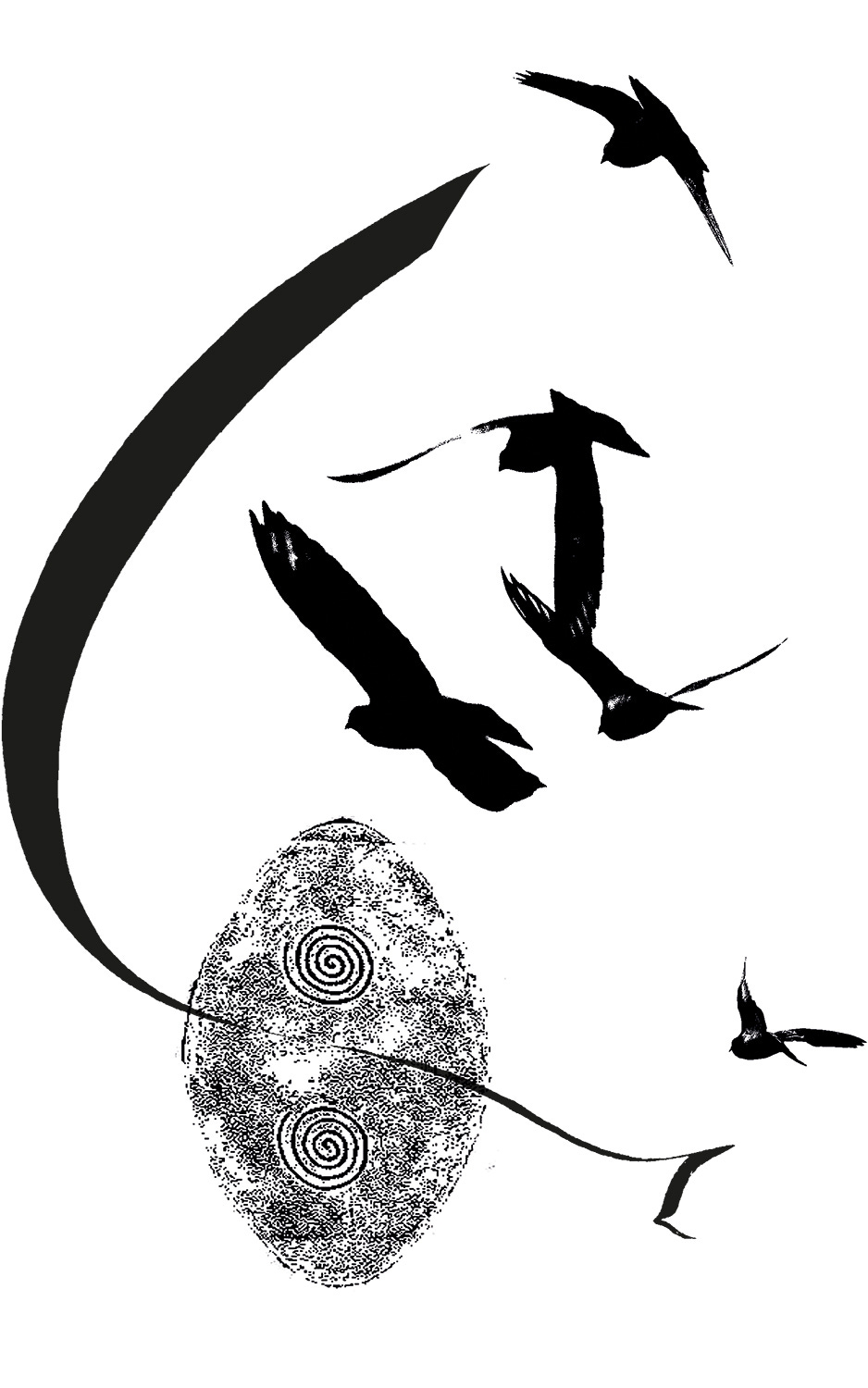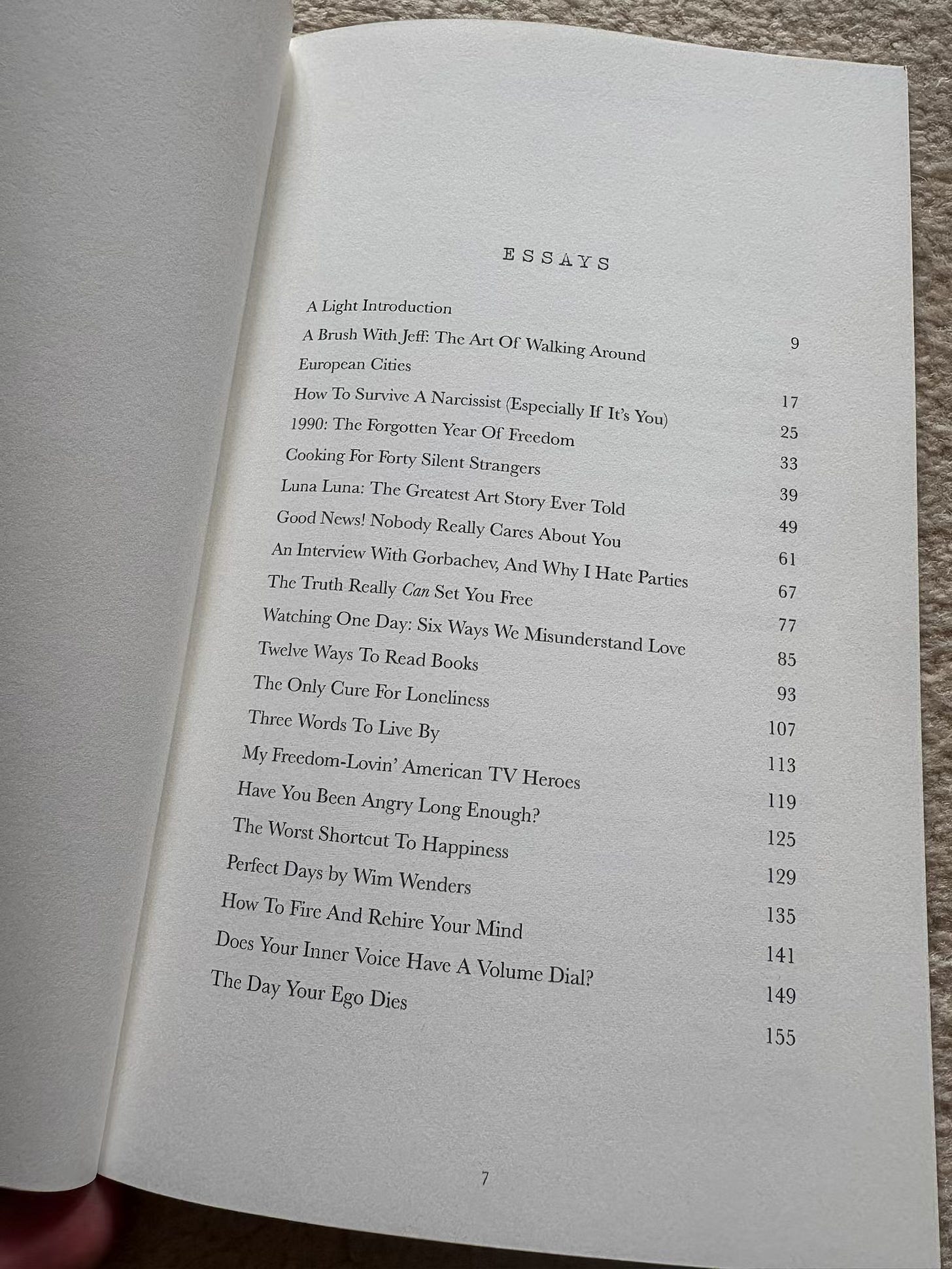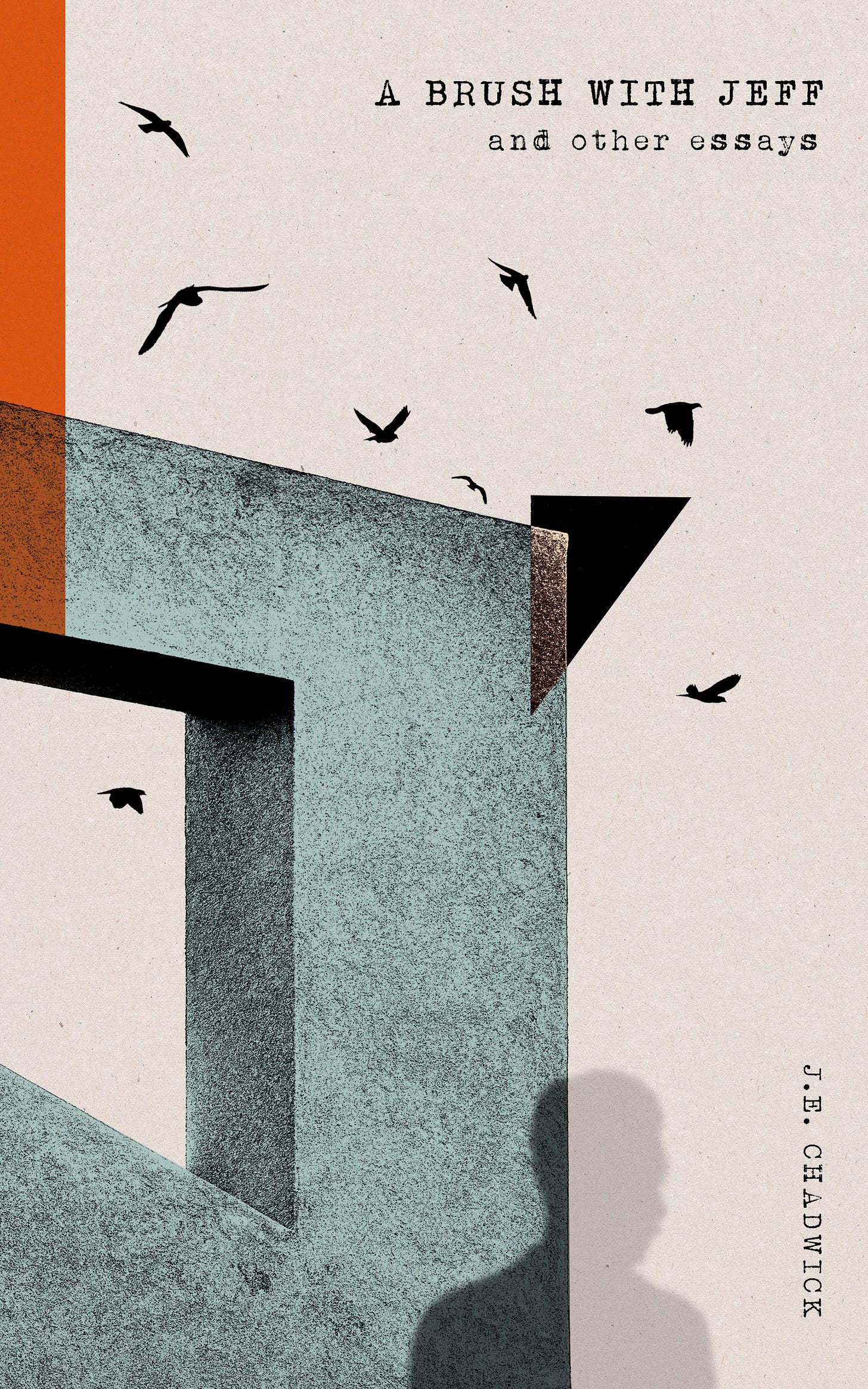Happy New Year, and thank you to all my readers for helping me publish ‘A Brush with Jeff’ last month. Writing regularly can be brutal, because there are always days or weeks when the words don’t flow. Having an audience and a weekly deadline, albeit small and imaginary, truly helps. Today is January 1st, and I still don’t feel the urge to write again yet, but I would like to share the first chapter of ‘A Brush with Jeff and Other Essays’, for those of you who haven’t read the book yet.
It describes the original intention for the book, but also how that intention was transformed by my writing process here at Substack.
And of course, it gives me an excuse to showcase more of the glorious artwork!
A Light Introduction
This is not the book I intended to write.
A Brush With Jeff is a book that was seduced by the idea it contained. Like an unsuspecting host gently eaten and transformed by a benign parasite, it emerged as a bright creature of indeterminate species at the last minute.
The idea I tried to write about was lightness. I had become obsessed with it, seeing it everywhere I looked—every movie, every artwork, every leaf and cloud—until I needed to write something down.
My obsession began with a single line by the French poet Paul Valéry:
Il faut être léger comme l'oiseau et non comme la plume.
Or
One should be light like a bird and not like a feather.
That line struck me as important and true. We should want to grow lighter with control, like a bird in flight, not like a feather buffeted by the wind. It explained the natural arc of human life: light, heavy, light again. We are born light, and every child should remain so as long as possible. We should be light when young, with little anxiety and great freedom. Like a feather in the wind, the universe will reveal its purpose.
Then, as young adults, we decide that we want to live a full life with all its commitments—a career, a partner, and children to raise in a beautiful home we own. We choose to pursue this full life, and it soon becomes heavy. We take on weighty responsibilities, which almost paralyze us. Often, we lose all sense of who we are and what we want, let alone how to get it.
But as we age we often shed responsibilities, and we might learn to embrace lightness again. We can become light like a bird, with elegant control and purpose. Waiting for the right time to shift gear, we might cut ourselves free, gently, and skillfully. We hope to create and love more and crave less; to live our next act in lightness.
This was the potent idea I had to write about.
But how? I started writing a book called Lightness: The Gentle Art of Cutting Yourself Free, in which each chapter tackled a different escape: free from anger, free from ego, free from anxiety, and so on. These were big, meaty questions, but I plowed on for months, solving the world’s problems one freedom at a time. After a dozen chapters, I started slowing and then ground to a halt, imprisoned by a self-imposed structure, sinking into muddy prose.
My book on lightness had become irremediably heavy.
Meanwhile, my actual life was growing lighter. I retired, meditated daily, bought a camper van, and explored the American West, often disappearing off the grid. By working out and eating well, I shed fifteen pounds. I even found love and intimacy again. But most of all, during that period, I curled up in a big chair and devoured books without worrying that I should do something else more important. I had cut things from my life to create a fresh space, and the thing that filled those hours was reading books in a big chair. And in every book, I still found those same calls to lightness:
“The free soul is rare, but you know it when you see it - basically because you feel good, very good, when you are near or with them.” — Charles Bukowski
“I want to sing like the birds sing, not worrying about who hears or what they think.” — Rumi
“Sliding brings lightness; lightness brings forgetting” — Steven Kotler on skiing, Gnar Country
“To attain knowledge, add things every day. To attain wisdom, subtract things every day.” — Lao Tzu
“A genuine sense of humor is having a light touch: not beating reality into the ground but appreciating reality with a light touch. The basis of Shambhala vision is rediscovering that perfect and real sense of humor, that light touch of appreciation.” — Chögyam Trungpa, Shambhala
The urge to write returned. I reread my chapters, hoping they were better than I remembered. They were not; my writing was sometimes profound but mostly turgid. The serious soul who toiled on those essays seemed like a stranger to me now; he lacked joy, playfulness, and, well, lightness. The manuscript was worthy, but not worthy of publishing, and the prospect of a full rewrite left me nauseous.
However, the prospect of writing a fresh essay each week excited me. The urge was simply to write, not to publish a book. I landed on the name Like A Bird, launched a Substack newsletter, and started publishing one essay every Wednesday morning.
Writing essays became a joy again. I kept a list of dozens of ideas, and each week, I sat down with an empty page and choose what to fill it with: the ultimate freedom. I only wrote when ambitious and playful - often just after dawn with strong, black coffee.
Part of the satisfaction of this cadence is getting feedback soon after publishing. The essay on Luna Luna: The Greatest Art Story Ever Told inspired several readers to buy tickets to view the exhibition in L.A. after which they shared their own experiences. In Cooking For Forty Silent Strangers, I described serving food for ten days at a silent retreat, after which a few signed up for a Vipassana course. An essay on Watching One Day: Six Ways We Misunderstand Love inspired a family member to share their own experience of love unexpectedly.
Before long, I had enough essays to consider a book again. Nothing beats a physical object; you can hold it up to your nose and smell it or gift it to a friend with a loving inscription. Forget chocolates and roses; nothing says I love you like an inscribed book.
I also wanted to work with an artist again – it’s like switching on a bigger, richer backup brain. When I published my first book, Path, I collaborated with my son Lawrence, a professional artist in London, who sketched thirty hand illustrations for the interior. The instant wonder of his sketches more than compensated for the mediocrity of my prose. I don’t understand why more readers don’t insist on delightful book design; even good writing improves with art.
This time, my son was too busy preparing for an exhibition, so I reached out to an artist in Lisbon whom I admire. Many of the essays had been written in Portugal, Spain, Austria and Croatia, while I’d been traveling to watch my youngest son play international football, so I was looking for a European modernist aesthetic. The manuscript I sent him - an edited selection of my favorite twenty essays - was titled Like A Bird, and he was excited to collaborate on it.
But something wasn’t right.
The name was memorable, but ironically, it still seemed heavy. It implied a powerful ordering principle, a philosophy of lightness, that somehow shaped every essay's curves. There was an unspoken hint that if you, dear reader, should make your way through this book of essays, you might also find lightness in your life.
In short, it suggested I was selling an idea. I’m not. I’m not selling anything.
After rereading and editing, one essay was shimmering brighter than the others - A Brush With Jeff: The Art Of Walking Around European Cities. The essay meanders through a sunny day in Vienna with light-hearted friends and an eccentric, free-spirited local guide called Jeff. Although he’s not actually Austrian. And he’s not called Jeff. And when he finally leaves us, we all somehow feel different:
We know our brush with Jeff represents something special, something rare and birdlike, something missing from our daily lives, an echo of our youth, but we can’t put it into words.
I realized this story belonged up front and on the cover. In describing a single, free-spirited day, I had at last written with lightness, without writing about lightness.
Writing these twenty essays changed me in unexpected ways and helped me reconnect over ideas with good friends.
But most of all they helped me find a new, lighter voice.






Is your book available for purchase anywhere?
Thank you for your inspiration this morning.